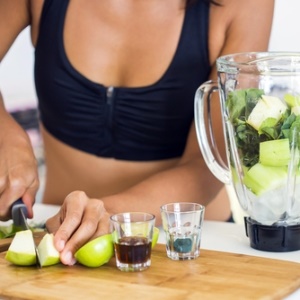
If we keep in mind that up to 20% of the global population eating a western diet suffer from irritable bowel syndrome (IBS), and that in some countries this disturbance of normal bowel function is “the second most common cause of absence from work”, we would expect researchers to have pinpointed its cause and also produced a cure long ago.
But like the common cold which defies defeat, the cause and cure of IBS remain a mystery. Nevertheless, a lot of progress currently being made, which may help patients suffering from this irritating and often painful condition to obtain relief.
Causes
No one can as yet say for certain what causes IBS, but researchers suggest that one or more of the following factors could be responsible:
IBS may be caused by a serotonin imbalance. Serotonin is what is called a “neurotransmitter”, a chemical involved in transmitting signals emitted by the nervous system. Serotonin is produced from tryptophan, one of the amino acids found in protein foods such as milk and dairy products, meat, fish and eggs.
A lack of serotonin in the brain is linked to depression. Certain antidepressants for example increase serotonin levels in the brain to alleviate depression. If a lack of serotonin in the gut causes IBS, medications that address this imbalance may be able to control the condition.
A genetic predisposition may well be important. IBS appears to occur in certain families, but unfortunately none of the genetic studies to date have been able to identify an “IBS” gene or cluster of genes responsible for the illness.
Inflammation of the gut could also play a role and some of the medications that are being developed to treat IBS are designed to stabilise mast cells (i.e. cells that release histamines and other compounds during inflammatory and allergic reactions).
Disturbed intestinal flora (the microorganisms that populate the digestive tract) could be involved with IBS. Most IBS patients either have too few or too many peristaltic movements, which could cause an overgrowth of bacteria in the gut, leading to constipation or diarrhoea. Bacterial overgrowth is linked to bloating, pain and diarrhoea.
Read: How treating the mind can treat IBS
Patients with IBS-C (constipation-prone IBS)
According to Wilkens, ispaghula husk, which is used as a laxative, is the “only laxative that was shown to be effective in symptom relief for IBS-C”. Ispaghula or psyllium is the husk of the seeds of various Plantago plants, which is available commercially as Fybogel. Patients with IBS-C should allow for at least a few days of use for this “gentle” laxative to start working.
Unfortunately many IBS-C sufferers are addicted to harsh laxatives because they demand “instant” relief and give up on gentler laxatives after 1-2 days. Give ispaghula or psyllium a chance to start working properly before you start dosing yourself with potentially harmful laxatives again.
Read: 8 foods to avoid with IBS
Patients with IBS-D (diarrhoea-prone IBS)
Wilkens notes that standard medications which are used to stop other types of diarrhoea (e.g. traveller’s diarrhoea), like loperamide, do not have the same effect on the symptoms of IBS-D.
Over-the-counter products such as Smecta which contains alumino-magnesium silicate powder, may provide relief for acute attacks of diarrhoea, but patients should guard against overdosing themselves and causing severe constipation with attendant complications. Follow the instructions in the package insert carefully to stop the diarrhoea.
Tackling IBS through diet
If the above mentioned factors do cause IBS, then most dietary treatments may not be able to control this condition. However, certain dietary precautions do help to alleviate acute and unpleasant symptoms.
For example, the use of probiotics (“good microorganisms” such as Lactobacillus and Bifidobacteria) to restore the flora of the digestive tract can be highly beneficial. Avoiding foods that you know cause bloating and wind, can alleviate some of the unpleasant side-effects of this condition.
The use of a food diary for 2-3 weeks, in which patients make a note of all the food and drink they consume and the incidence of the symptoms of IBS that occur during this period, can often help to identify which foods they tend to react to.
If you should find this process and the interpretation of the results difficult, please consult a registered dietician to help you devise an IBS diet that avoids the offending foods, but is still balanced and will not lead to deficiencies.
Patients with IBS should go for help to a doctor and dietician so that this highly prevalent disorder does not rule their lives. Modest changes in diet and the use of a medication such as Fybogel could make a great difference to their quality of life and free them from the shackles of IBS.
Read more:
How probiotics can reduce your IBS symptoms




 Publications
Publications
 Partners
Partners











